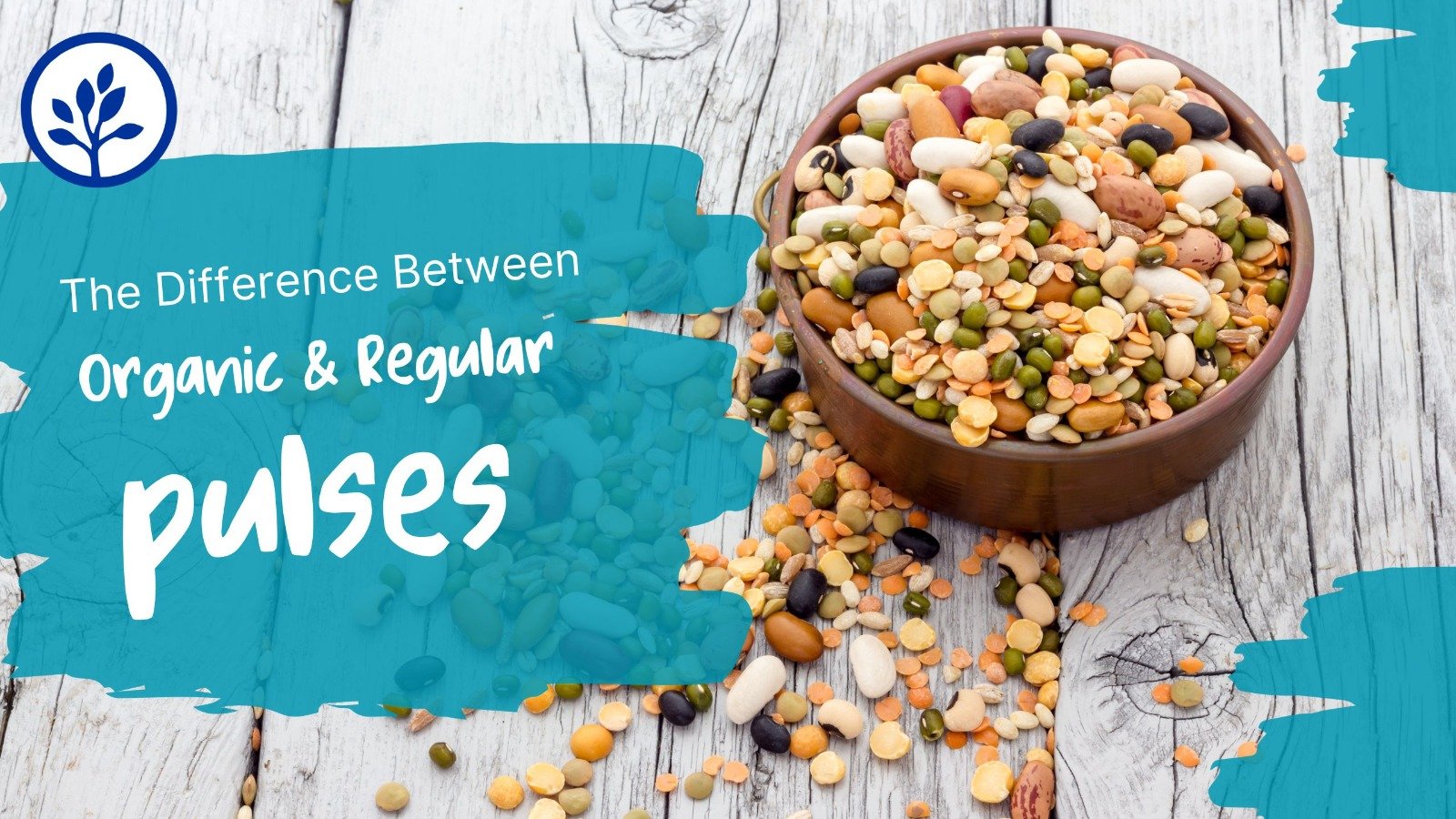In the pursuit of a healthier lifestyle and balanced diet, individuals are turning to organic pulses and beans for their nutritional value. This blog aims to elucidate the numerous benefits of incorporating organic pulses and beans into your diet. From enhancing overall well-being to providing essential nutrients, these legumes are celebrated for their positive impact on health. Discover the compelling reasons and invaluable advantages of making organic pulses and beans a fundamental part of your nutritious and wholesome dietary choices.
Organic pulses and beans boast substantial nutritional value, offering significant health benefits.
The following points underscore their positive impact:
Rich in Protein:
Pulses and beans stand out for their richness in plant-based protein, making them excellent choices for a vegetarian diet. The significance lies in their role in bolstering the immune system and supporting muscle health. As potent sources of vegetarian protein, these legumes offer a wholesome and nutrient-dense addition to your meals, contributing to overall well-being.
Antioxidant:
Pulses and beans are packed with antioxidants, providing multifaceted benefits such as reducing the risk of chronic diseases and cancer. The abundance of these protective compounds underscores the positive impact of incorporating these legumes into your diet, contributing to overall health and well-being.
Weight Management:
It is rich in both protein and fiber, aiding in weight prevention and calorie reduction.
Vitamins and Minerals:
Pulses and beans are nutrient-rich, providing essential elements such as zinc, iron, magnesium, potassium, and vitamins B. They contribute to energy metabolism, support immune system function, and promote bone health in various ways. Opting for the Consumption of Organic Pulses and Beans Over
Conventional Varieties:
Individual preferences and values play a significant role in the decision-making process.
Here are a few examples illustrating why one might choose to prioritize organic pulses and beans.
Reduced Pesticide Residues:
- Organic Farming Practices: Organic farming employs natural pest control methods, avoiding synthetic and chemical inputs. It prioritizes environmentally friendly practices, fostering a healthier ecosystem and producing crops free from artificial substances, aligning with a commitment to sustainable and chemical-free agriculture.
- Lower Residue Levels: Organic pulses boast lower pesticide residues, minimizing synthetic chemicals. This cultivation approach prioritizes reduced environmental impact, offering consumers a healthier option with fewer chemical residues. Choosing organic pulses aligns with a commitment to sustainable agriculture, supporting both personal well-being and eco-friendly farming practices.
2. Environmental Impact:
- Sustainable Practices: Organic farming is dedicated to prioritizing environmental well-being through its sustainable practices. By promoting biodiversity, reducing chemical inputs, and fostering soil health, it strives to create a harmonious balance between agriculture and the ecosystem. This commitment aligns with a broader goal of ensuring the long-term health and resilience of the environment.
- No Synthetic Chemicals: Organic farming eliminates synthetic pesticides, playing a crucial role in reducing pollution. This commitment fosters a more balanced ecosystem by emphasizing natural pest control methods. By excluding harmful chemicals, organic farming contributes to a healthier environment, aligning with sustainable practices that prioritize the intricate harmony between agricultural processes and the broader ecological system.
3. Soil Health:
- Crop Rotation and Diversity: Organic farming integrates essential practices such as crop rotation and diversification. These strategies enhance soil health and fertility by minimizing nutrient depletion and preventing the build-up of pests and diseases. The systematic rotation of crops and the inclusion of diverse plant species contribute to a more resilient and sustainable agricultural.
- No Synthetic Chemicals: Free from synthetic chemicals, organic farming aids in preventing soil degradation and supports the proliferation of beneficial microorganisms. This commitment to chemical-free cultivation not only safeguards soil health but also promotes a more sustainable and ecologically balanced agricultural system.
4. Non-GMO:
Modified Organisms (GMOs: Organic pulses are cultivated using natural methods and non-modified seeds. This natural approach to farming ensures that the growth of organic pulses is free from artificial interventions, aligning with a commitment to sustainable and unaltered agricultural practices.
5. Concerns about Additives:
No Synthetic Additives: Organic pulses are devoid of synthetic additives, preservatives, or artificial colors, distinguishing them as natural, minimally processed food. This commitment to purity aligns with organic principles, offering consumers a wholesome and unadulterated option that reflects a dedication to both health-conscious choices and environmentally sustainable practices.
6. Taste and Nutrient Content:
Perceived Quality: Many individuals place their trust in organic pulses due to their nutritional value and appealing taste, attributed to the absence of synthetic chemicals. The assurance of a chemical-free cultivation process fosters confidence among consumers. This dual emphasis on health benefits and flavor underscores the belief that organic pulses not only contribute to a healthier lifestyle but also deliver a more authentic and naturally flavorful dining experience.
- Top of Form
Scientific evidence supports the safety of both conventionally processed and organic pulses for consumption as part of a healthy diet. Rigorous research has demonstrated that both options provide essential nutrients without compromising safety. Whether opting for organic or non-organic pulses, consumers can confidently include them in their diet, knowing that both methods adhere to established safety standards. This scientific validation reinforces the notion that individuals have flexibility in choosing between conventional and organic pulses for a health-conscious dietary approach.
In conclusion, incorporating organic pulses and beans into one's diet offers a pathway to a healthier lifestyle. These legumes, abundant in nutrition, not only contribute to overall well-being but also carry environmental benefits through organic farming practices. The richness in essential nutrients and the commitment to sustainable agriculture make organic pulses and beans a commendable choice for those seeking both personal health and environmental responsibility in their dietary preferences.

